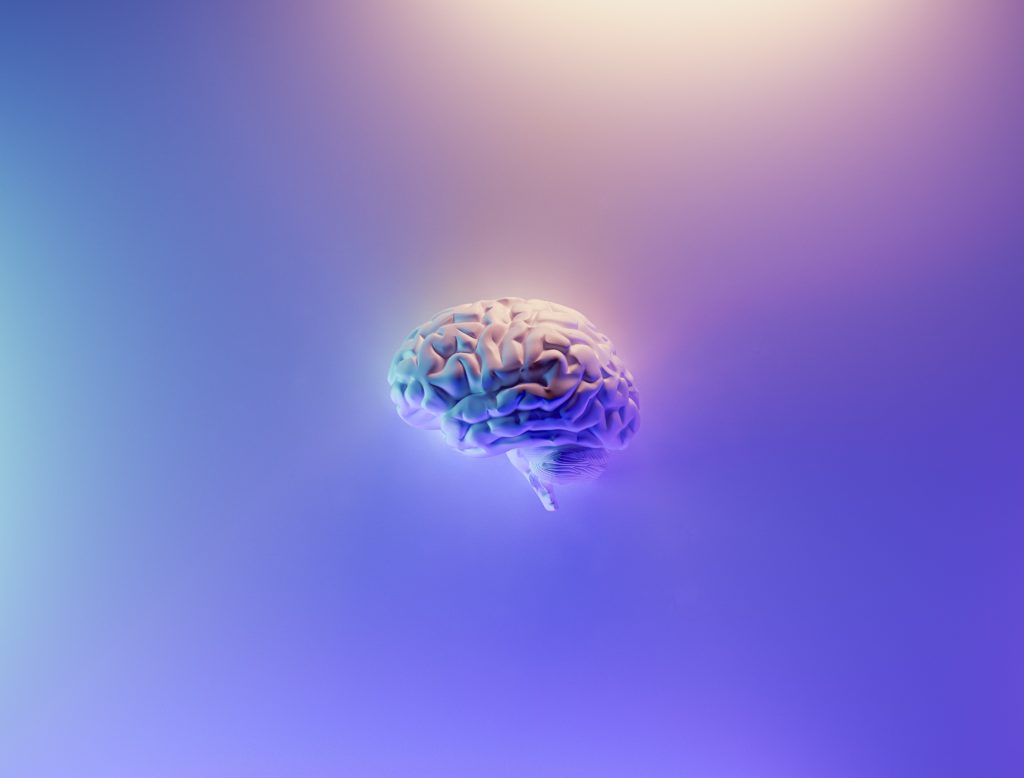What is ADHD?
ADHD or Attention-Deficit Hyperactivity Disorder is a highly genetic, brain-based syndrome that has to do with the regulation of a particular set of brain functions and related behaviors. In addition, ADHD is a combination of persistent problems, such as difficulty sustaining attention, hyperactivity, and impulsive behavior. The symptoms differ from person to person and may require ADHD treatment for intense cases.
According to the Centers for Disease and Control Prevention (CDC), Attention-Deficit Hyperactivity Disorder is one of the most common neurodevelopmental disorders of childhood. It is usually first diagnosed in childhood and often lasts into adulthood. Children with ADHD may have trouble paying attention, controlling impulsive behaviors (may act without thinking about what the result will be), or be overly active.
Attention-deficit hyperactivity disorder (ADHD) is a condition that affects people’s behavior. People with ADHD can seem restless, may have trouble concentrating, and may act on impulse. Symptoms of ADHD tend to be noticed at an early age and may become more noticeable when a child’s circumstances change, such as when they start school.
Most cases are diagnosed when children are 6 to 12 years old. The symptoms of Attention-Deficit Hyperactivity Disorder usually improve with age, but many adults who were diagnosed with the condition at a young age continue to experience problems. People with ADHD may also have additional problems, such as sleep and anxiety disorders.

ADHD vs. ADD
Attention-deficit disorder (ADD) is an outdated term for what experts now call attention-deficit hyperactivity disorder (ADHD). The term ADD first appeared in the third edition of the “Diagnostic and Statistical Manual of Mental Disorders (DSM-3),” a reference manual that helps mental health professionals diagnose mental health conditions.
Experts separated the condition into two subtypes:
- ADD with hyperactivity
- ADD without hyperactivity
When the American Psychiatric Association released a revised edition in 1987, they combined these two subtypes into one condition: Attention-Deficit Hyperactivity Disorder (ADHD).
Attention-Deficit Hyperactivity Disorder Signs and Symptoms
The symptoms of Attention-deficit hyperactivity disorder (ADHD) in children and teenagers are well defined, and they’re usually noticeable before the age of 6. They occur in more than 1 situation, such as at home and school.
Inattentive symptoms
- Having a short attention span and being easily distracted
- Making careless mistakes – for example, in schoolwork
- Appearing forgetful or losing things
- Being unable to stick to tasks that are tedious or time-consuming
- Appearing to be unable to listen to or carry out instructions
- Constantly changing activity or task
- Having difficulty organising tasks
Hyperactive impulsive symptoms
- Being unable to sit still, especially in calm or quiet surroundings
- Constantly fidgeting
- Being unable to concentrate on tasks
- Excessive physical movement
- Excessive talking
- Being unable to wait their turn
- Acting without thinking
- Interrupting conversations
- Little or no sense of danger
These symptoms can cause significant problems in a child’s life, such as underachievement at school, poor social interaction with other children and adults, and problems with discipline.
Causes of Attention-Deficit Hyperactivity Disorder
Scientists are studying causes and risk factors to find better ways to manage and reduce the chances of a person having Attention-Deficit Hyperactivity Disorder. The causes and risk factors for ADHD are unknown, but current research shows that genetics plays an important role.
In addition to genetics, scientists are studying other possible causes and risk factors including:
- Brain injury
- Exposure to environmental (e.g., lead) during pregnancy or at a young age
- Alcohol and tobacco use during pregnancy
- Premature delivery
- Low birth weight
Research does not support the popularly held views that Attention-Deficit Hyperactivity Disorder is caused by eating too much sugar, watching too much television, parenting, or social and environmental factors such as poverty or family chaos. Of course, many things, including these, might make symptoms worse, especially in certain people. But the evidence is not strong enough to conclude that they are the main causes of ADHD.
Dual Diagnosis
Attention-Deficit Hyperactivity Disorder seems to represent a possible risk factor for developing substance abuse, up to 50% of patients with continuing ADHD symptoms from childhood were found to develop a substance-use disorder. The presence of ADHD may influence adolescent and adult substance-use disorders in different ways: earlier age of onset, higher frequency, longer duration of substance abuse, and transition from alcohol abuse to other substance-use disorders.
The American Academy of Family Physicians recognizes that somewhere in the 30 to 50 percent of children with Attention-Deficit Hyperactivity Disorder will continue to show signs of the condition as they grow older. While children are obliged to jump, jump around, run or climb when diverted, attention-deficit hyperactivity disorder in adults will often become aggressive and fearful.
They may face difficulties in the workplace as they feel overwhelmed and lose the things they need to complete the task. They always fail to remember the arrangements and ignore the social obligations. They may have conflicts in their communication because they provide violent ideas without intuition or neglect to focus on others.

Attention-Deficit Hyperactivity Disorder in adults and adolescents may turn to alcohol or medication for relaxation, social balance, or retreat. They may drink or use drugs because of a feeling of dissatisfaction or low self-esteem. Recovering from attention deficit hyperactivity disorder requires a lot of help from caring professionals who can help you rebuild your self-esteem.
For a person to receive a diagnosis of Attention-Deficit Hyperactivity Disorder, the symptoms of inattention and/or hyperactivity-impulsivity must be chronic or long-lasting, impair the person’s functioning, and cause the person to fall behind typical development for their age. Stress, sleep disorders, anxiety, depression, and other physical conditions or illnesses can cause similar symptoms to those of ADHD. Therefore, a thorough evaluation is necessary to determine the cause of the symptoms.
ADHD symptoms can appear as early as between the ages of 3 and 6 and can continue through adolescence and adulthood. Symptoms of attention-deficit hyperactivity disorder can be mistaken for emotional or disciplinary problems or missed entirely in children who primarily have symptoms of inattention, leading to a delay in diagnosis. Adults with undiagnosed ADHD may have a history of poor academic performance, problems at work, or difficult or failed relationships.
Types of ADHD
According to the CDC, there are three different types of ADHD, depending on which types of symptoms are strongest in the individual:
- Predominantly Inattentive Presentation: It is hard for the individual to organize or finish a task, to pay attention to details, or to follow instructions or conversations. The person is easily distracted or forgets details of daily routines.
- Predominantly Hyperactive-Impulsive Presentation: The person fidgets and talks a lot. It is hard to sit still for long (e.g., for a meal or while doing homework). Smaller children may run, jump or climb constantly. The individual feels restless and has trouble with impulsivity. Someone who is impulsive may interrupt others a lot, grab things from people, or speak at inappropriate times. It is hard for the person to wait their turn or listen to directions. A person with impulsiveness may have more accidents and injuries than others.
- Combined Presentation: Symptoms of the above two types are equally present in the person.
Because symptoms can change over time, the presentation may change over time as well.
Attention-Deficit Hyperactivity Disorder Treatments
Adult ADHD Treatment
In adults, the symptoms of ADHD are more difficult to define. This is largely due to a lack of research into adults with ADHD. As ADHD is a developmental disorder, it’s believed it cannot develop in adults without it first appearing during childhood. But it’s known that symptoms of ADHD often persist from childhood into a person’s teenage years and then adulthood.
Any additional problems or conditions experienced by children with ADHD, such as depression or dyslexia, may also continue into adulthood. By the age of 25, an estimated 15% of people diagnosed with ADHD as children still have a full range of symptoms, and 65% still have some symptoms that affect their daily lives.
The symptoms in children and teenagers are sometimes also applied to adults with possible ADHD. But some specialists say how inattentiveness, hyperactivity, and impulsiveness affect adults can be very different from the way they affect children. For example, hyperactivity tends to decrease in adults, while inattentiveness tends to get worse as the pressures of adult life increase.

Adult symptoms of ADHD also tend to be far more subtle than childhood symptoms. Some specialists have suggested the following as a list of symptoms associated with ADHD in adults:
- Blurting out responses and often interrupting others
- Mood swings, irritability and a quick temper
- Inability to deal with stress
- Extreme impatience
- Forgetfulness
- Taking risks in activities, often with little or no regard for personal safety or the safety of others – for example, driving dangerously
- Carelessness and lack of attention to detail
- Continually starting new tasks before finishing old ones
- Poor organisational skills
- Inability to focus or prioritise
- Continually losing or misplacing things
- Restlessness and edginess
- Difficulty keeping quiet, and speaking out of turn
While there is no cure for ADHD, currently available treatments may reduce symptoms and improve functioning. Treatments include medication, psychotherapy, education or training, or a combination of treatments.
Medication
For many people, ADHD medications reduce hyperactivity and impulsivity and improve their ability to focus, work, and learn. Sometimes several different medications or dosages must be tried before finding the right one that works for a particular person. Anyone taking medications must be monitored closely by their prescribing doctor.
Stimulants: The most common type of medication used for treating attention-deficit hyperactivity disorder is called a “stimulant.” Although it may seem unusual to treat attention-deficit hyperactivity disorder with a medication that is considered a stimulant, it works by increasing the brain chemicals dopamine and norepinephrine, which play essential roles in thinking and attention.
Under medical supervision, stimulant medications are considered safe. However, like all medications, they can have side effects, especially when misused or taken more than the prescribed dose, and require an individual’s health care provider to monitor how they may be reacting to the medication.
Non-stimulants: A few other ADHD medications are non-stimulants. These medications take longer to start working than stimulants, but can also improve focus, attention, and impulsivity in a person with ADHD. Doctors may prescribe a non-stimulant: when a person has bothersome side effects from stimulants, when a stimulant was not effective, or in combination with a stimulant to increase effectiveness.
Psychotherapy and Psychosocial Interventions
Several specific psychosocial interventions have been shown to help individuals with ADHD and their families manage symptoms and improve everyday functioning.
Behavioral therapy is a type of psychotherapy that aims to help a person change their behavior. It might involve practical assistance, such as help organizing tasks or completing schoolwork, or working through emotionally difficult events. Behavioral therapy also teaches a person how to:
- Monitor their own behavior
- Give oneself praise or rewards for acting in a desired way, such as controlling anger or thinking before acting
Cognitive-behavioral therapy helps a person learn how to be aware and accepting of one’s own thoughts and feelings to improve focus and concentration. The therapist also encourages the person with ADHD to adjust to the life changes that come with treatment, such as thinking before acting or resisting the urge to take unnecessary risks.
Family and marital therapy can help family members and spouses find productive ways to handle disruptive behaviors, encourage behavior changes, and improve interactions with the person with ADHD.
Support groups can help parents and families connect with others who have similar problems and concerns. Groups often meet regularly to share frustrations and successes, exchange information about recommended specialists and strategies, and talk with experts.
Reclaim your life from Attention-Deficit Hyperactivity Disorder
Adults with Attention-Deficit Hyperactivity Disorder can experience depression or anxiety, problems with family, sexual behavior, work, and substance abuse. It is important to obtain an assessment to learn your best ADHD treatment options to best support your loved one with ADHD.
ADHD is a condition that can cause problems that should not be taken lightly. We Level Up Washington center can provide you, or someone you love, ADHD Treatment with professional and safe care. Feel free to call us to speak with one of our counselors. We can inform you about this condition by giving you relevant information. Our specialists know what you are going through. Please know that each call is private and confidential.
Sources
[1] What is ADHD? – Centers for Disease Control and Prevention
[2] The dual diagnosis of attention-deficit/hyperactivity disorder and substance abuse: case reports and literature review – National Center for Biotechnology Information
[3] We Level Up – Mental Health » ADHD Treatment
[4] Attention-Deficit/Hyperactivity Disorder – The National Institute of Mental Health (NIMH)